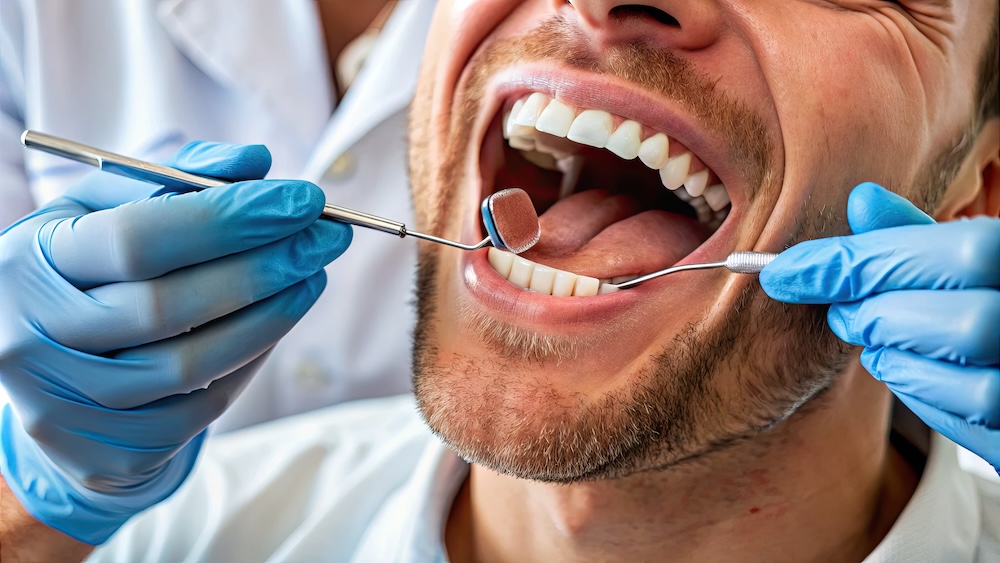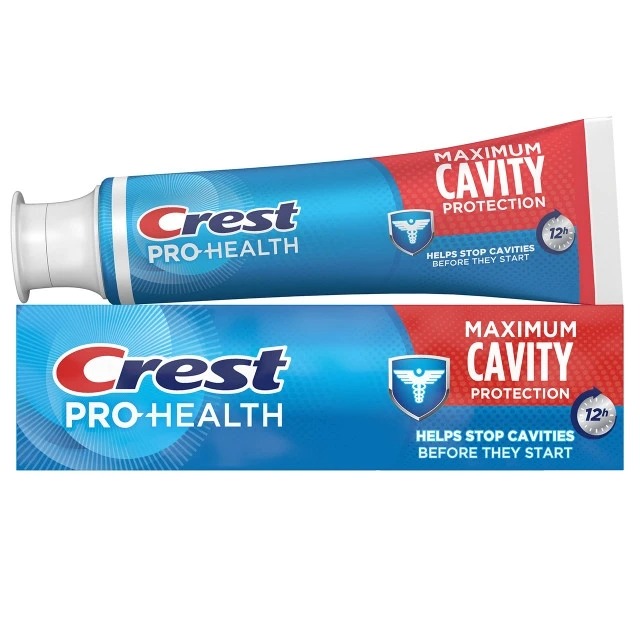Bone Loss In Teeth and Gums: Causes, Symptoms, And Treatments

Summary
Key Takeaways
- Bone loss in teeth and gums is often caused by gum disease, missing teeth, or trauma.
- Common signs include receding gums, loose teeth, and jaw discomfort.
- Treatments range from deep cleaning and antibiotics to bone grafts and dental implants.
- Preventive care like brushing, flossing, and avoiding tobacco can protect against bone loss.
- Early detection makes a huge difference, so regular dental checkups are essential.
Table of Contents

This blog has been reviewed and approved by Dr Robert Lee, a dental professional of 35 years
LEARN MORE >Key Takeaways
What Is Bone Loss in Teeth and Gums?
Bone loss around the teeth refers to the gradual breakdown of the bone that holds your teeth in place, specifically the alveolar bone. This bone is part of your jaw and plays a key role in keeping your teeth stable. When it begins to deteriorate, it weakens the support for your teeth, which usually leads to teeth moving and shifting, or even tooth loss.
Dentists typically use dental X-rays to check for bone loss. These images help show how much bone has been lost and whether it’s progressing. A detailed exam may also include measuring the depth of your gum pockets (the space between the tooth and gum). Deeper pockets can signal gum disease and bone loss. That’s why regular dental visits are so important, to keep tabs on things before they can worsen and become major problems.
Causes of Bone Loss
As with so many dental-related issues, there’s no single cause of bone loss. However, there are a few common triggers.
Gum Disease (Periodontitis)
Gum disease is the most common cause of bone loss, as noted by the Cleveland Clinic. When plaque and tartar build up under the gum line, bacteria cause the gums to become inflamed. Over time, this inflammation can destroy the tissue and bone supporting the teeth.
Poor Dental Habits
Not brushing or flossing regularly can lead to plaque buildup, which increases the risk of gum disease and infection. In addition, smoking and chewing tobacco can reduce blood flow to the gums, slowing healing and making bone loss more likely.
Tooth Loss
Missing a tooth can affect more than just your appearance. That’s because the jawbone relies on regular stimulation from chewing to stay healthy. Without a tooth in place, the bone underneath no longer gets that stimulation and begins to shrink. This can get worse if the gap is left unfilled for a long time.
Ill-fitting Dentures or Bridges
Dentures or bridges that don’t fit properly can cause unhealthy pressure on your gums and jawbone. Over time, this can accelerate bone deterioration.
Trauma or Injury
Accidents that damage or knock out teeth can also harm the bone beneath. So, if the area isn’t treated properly, the bone may start to resorb (aka shrink) over time.
Medical Conditions
Conditions like osteoporosis and diabetes affect bone density and immune response, and that can also contribute to bone loss. Some medications, including steroids or anti-epileptic drugs, may also play a role.
Symptoms in the Jaw and Gums
Bone loss doesn't always cause pain, which is why it's so often missed until it becomes serious. However, there are some warning signs you should look out for. If you're experiencing any of these symptoms, it's a good idea to see your dentist or dental hygienist.
- Receding gums (this might make your teeth look longer)
- Loose or shifting teeth
- Gaps forming between teeth
- Sensitivity to hot or cold
- Pain when chewing
- Changes in the way dentures fit
- A sunken appearance in the lower face or jaw
Treatment Options

While bone loss sounds serious—and make no mistake, it is—it’s not always irreversible. Several treatments are available depending on how far the condition has progressed.
1. Deep Cleaning (Scaling and Root Planing)
This is typically the first step if gum disease is involved. It removes plaque and tartar from below the gum line and smooths the root surfaces so the gums can reattach to the teeth.
2. Antibiotics or Antimicrobial Rinses
These help control bacterial infection and inflammation. They may be used in tandem with deep cleaning to improve outcomes and bring back healthy gums.
3. Bone Grafts
In more severe cases, a dental bone graft can be used to replace lost bone and encourage new bone growth. This procedure can help save teeth and prepare the jaw for future implants.
4. Guided Tissue Regeneration
This procedure uses a membrane to help the body’s natural ability to regrow bone, a process described by sources like the National Institutes of Health.
5. Dental Implants
If you've lost a tooth due to bone loss, a dental implant can replace it. The implant stimulates the bone just like a natural tooth, helping to prevent further loss.
6. Flap Surgery
This is a surgical procedure that lifts the gums away from the teeth to clean the roots and repair bone damage. It’s typically used in very advanced cases of gum disease.
Everyday Steps to Prevent Bone Loss
You can avoid a lot of dental issues, including bone loss, by sticking to a solid oral hygiene routine. You probably know most of this already. The trick is to do it regularly and thoroughly.
- Brush your teeth twice a day with fluoride toothpaste
- Floss daily to clean between your teeth
- Visit the dentist every 6 months for checkups and cleanings
- Don't skip dental work, because fillings, cleanings, or crowns help prevent bigger problems
- Eat a healthy diet rich in calcium and vitamin D to support bone health
- Avoid smoking or chewing tobacco
When to See a Dentist
If your gums are red, swollen, or bleeding, or your teeth feel loose, it's definitely time to get things checked out. The earlier you catch bone loss, the easier it is to treat. Waiting too long can make it harder to reverse and may lead to tooth loss or more invasive procedures down the line. So don't delay. Set up an appointment with a dental professional as soon as you can.
Summary
Bone loss in the jaw and gums is often unseen and can creep up on you, but it has big consequences if left untreated. It can lead to loose teeth, gum problems, and even changes in the shape of your face. It’s most commonly caused by gum disease, but can also result from missing teeth, trauma, or poor dental habits.
Symptoms like gum recession, loose teeth, or changes in your bite are red flags. The good news is that if you catch it early, there are plenty of ways to manage the damage and stop its progression. With early detection and modern dental treatments like deep cleaning, bone grafts, and implants, it’s possible to stop bone loss before it causes significant damage. So regular dental checkups are essential.
As with all things related to oral health, prevention is your best defense. So, brushing and flossing regularly, avoiding tobacco, and dental visits every six months can protect against bone loss and treat gum disease before it spreads and causes more problems. With proper care and checkups, your teeth and bones will be healthy and stable for the long haul.
Good Oral Hygiene Starts With Oral-B
Healthy gums are crucial to tooth and mouth health. In the event of gum disease (which starts as gingivitis and can progress to periodontitis), the first line of defense is to see a dental professional. In the event of gum disease (also known as gingivitis), the first line of defense is to see a dental professional. They can do a proper examination, determine the level of periodontal disease, and recommend treatments. But there are things you can do to help.
- When you brush with an Oral-B iO electric toothbrush, you can help protect your gums. The oscillating-rotating technology is proven to be gentle on gums, which is important for those who are susceptible to gum recession. The superior cleaning action of the Oral-B iO helps you prevent plaque buildup which can lead to gum issues, and can improve gum health more effectively than a manual toothbrush.
- The right brush head also makes a big difference in effective cleaning without gum irritation. So pair your toothbrush with an Oral-B Ultimate Clean brush head, which is designed to remove significantly more plaque along the gumline than a regular manual toothbrush.
- A toothpaste like Crest Gum Detoxify contains activated stannous fluoride, which neutralizes the plaque bacteria that cause gingivitis. Paired with an Oral-B iO electric toothbrush, this routine helps reverse gingivitis and gum bleeding and restores your gums to a healthier state. The best mouth rinses, like Crest PRO-HEALTH Multi-Protection Mouthwash, are clinically proven to provide 24-hour protection against plaque and gingivitis with twice-daily use.
- Dental floss, used daily, helps prevent gingivitis as part of a complete dental plan. Look for a floss that can fit more easily into tight spaces, such as Oral-B Glide Pro-Health Deep Clean Floss.
- There is a connection between oral health and systemic health…That's why, beyond helping with issues such as tooth decay, gum disease and tooth loos, our products can help prevent and reduce plaque bacteria before they spread to other parts of the body.
FAQs
-
Can bone loss in teeth be reversed?
-
How to slow down bone loss in teeth?
-
What vitamins are good for bone loss in teeth?
Sources
- https://www.mouthhealthy.org/all-topics-a-z/gum-disease
- https://pmc.ncbi.nlm.nih.gov/articles/PMC10457807/
- https://www.perio.org/press-release/statement-from-the-american-academy-of-periodontology-aap-on-the-importance-of-preserving-natural-teeth/#:~:text=“Establishing%20and%20maintaining%20oral%20health,and%20benefits%20before%20considering%20extraction
- https://www.nidcr.nih.gov/news-events/nidcr-news/2024/probing-periodontal-disease
- https://my.clevelandclinic.org/health/treatments/21727-dental-bone-graft
Biesbrock, A., et al. (2019). The effects of bioavailable gluconate chelated stannous fluoride dentifrice on gingival bleeding: Meta-analysis of eighteen randomized controlled trials. Journal of Clinical Periodontology, 46(12), 1205–1216. https://doi.org/10.1111/jcpe.13203
He, T., et al. (2025). Randomized Controlled Trials Assessing Exposure Frequency Effects of Stannous Fluoride on Gingivitis. JDR Clinical and Translational Research, 10(2), 124–134. https://doi.org/10.1177/23800844241263031
Scientific American. (2021). The Surprising Perils of Periodontal Disease. https://www.scientificamerican.com/custom-media/healthy-mouth-healthy-body/the-surprising-perils-of-periodontal-disease/
Sutor, S., et al. (2025). Effect of a powered and a manual toothbrush in subjects susceptible to gingival recession: A 36-month randomized controlled clinical study. International Journal of Dental Hygiene, 23(1), 26–36. https://doi.org/10.1111/idh.12834
Zou, Y., et al. (2024). A meta-analysis comparing toothbrush technologies on gingivitis and plaque. International Dental Journal, 74(1), 146-156. https://doi.org/10.1016/j.identj.2023.06.009
Table of Contents
- What Is Bone Loss in Teeth and Gums?
- Causes of Bone Loss
- Symptoms in the Jaw and Gums
- Treatment Options
- Everyday Steps to Prevent Bone Loss
- When to See a Dentist
- Summary
- Good Oral Hygiene Starts With Oral-B
-
- FAQs
- Sources

This blog has been reviewed and approved by Dr Robert Lee, a dental professional of 35 years
LEARN MORE >
Sign Up
for oral care tips, expert advise, and exclusive offers.



